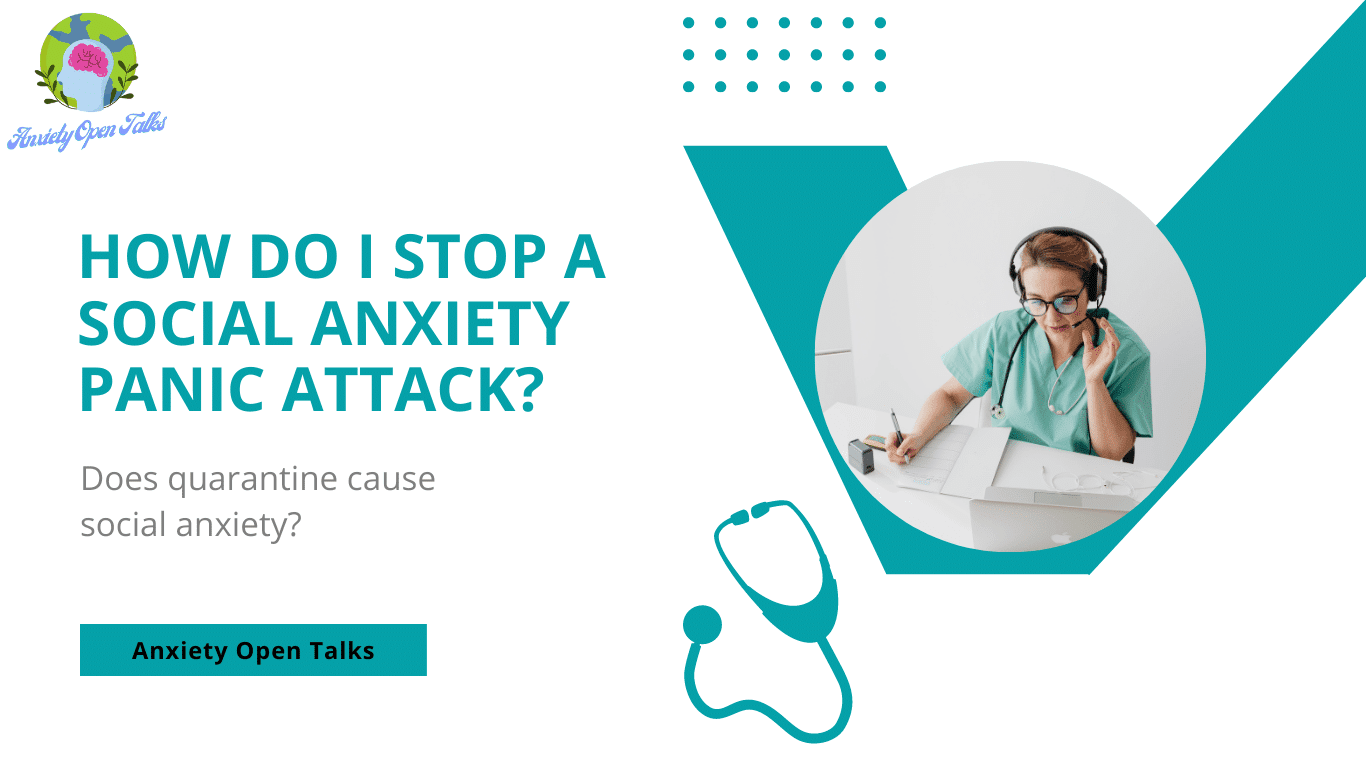Find out how to stop a social anxiety panic attack & get answer to the question: Does quarantine cause social anxiety? 🤕
How do I stop a social anxiety panic attack?
How to Handle Panic Attacks
A feeling of sudden and acute worry is what's known as a panic attack. An incident of panic can also be accompanied by a variety of physical manifestations, such as trembling, a sense of disorientation, nausea, rapid and irregular heartbeats, dry mouth, dyspnea, perspiration, and dizziness.
The signs and symptoms of a panic attack are rarely life-threatening, but they can be quite unsettling. They have the ability to make you feel as if you are having a heart attack, that you are going to pass out, or even that you are going to die.
The duration of the vast majority of panic episodes ranges anywhere from five minutes to half an hour.
Relaxation techniques for those who suffer from panic attacks
During a panic attack, if you are breathing quickly, completing a breathing exercise will help reduce the other sensations you are experiencing. Give this a try:
Inhale through your nostrils with as much calmness, profundity, and sensitivity as you can muster.
Exhale in a manner that is slow, deep, and gentle via your mouth.
Some people find it beneficial to count continuously from one to five on each inhale and exhale of air when doing deep breathing exercises.
Turn your attention to your breath while you close your eyes.
It shouldn't take more than a few minutes before you start to feel better. It's possible that you'll feel exhausted after that.
Methods for the prevention of panic attacks
Professor Salkovskis recommends that you make an effort to identify the specific sources of stress in your life that may be contributing to the deterioration of your health conditions. It is essential that your motions and the things you normally do not become restricted.
Regularly engaging in breathing exercises will assist in the prevention of panic attacks as well as the relief of their symptoms when they do occur.
Maintaining a regular exercise routine, particularly one that emphasizes aerobic activity, will assist you in effectively managing your stress levels, releasing built-up tension, improving your mood, and boosting your confidence.
Maintaining stable blood sugar requires that you eat meals at regular intervals.
Caffeine, alcohol, and smoking are all things you should stay away from if you suffer from panic attacks.
Support groups for those who struggle with panic can provide helpful guidance on how to effectively manage your attacks. Discovering that other people are going through the same emotions as oneself can be a source of comfort. Your general practitioner will be able to put you in touch with local groups.
Cognitive behavioral therapy, often known as CBT, can help you recognize and alter the unhelpful thought patterns that are contributing to your panic attacks.
Does quarantine cause social anxiety?
During the COVID-19 pandemic, many people have reported feeling as though their social skills have become a little rusty. You should know that you are not alone in this sensation.
The constraints placed on social distancing are relaxing, and more individuals are getting fully immunized, therefore social anxiety is becoming more prevalent. This is completely normal.
After going through a year of a global epidemic, it is normal, according to the opinions of experts, to feel apprehensive and to have some degree of social disorder.
According to Leslie Adams, LCPC, CADC, a case therapist at Northwestern Medicine Central DuPage Hospital, experiencing prolonged periods of solitude can lead to increased levels of social anxiety.
Even people who perceive themselves to be inherently more extroverted could be having difficulty. These emotions are only made worse by the concerns about COVID-19's potential health effects.
Adams added that the message that has been conveyed is to "keep away from people." This goes against the basic nature of humans, who are hardwired to be part of society.
We have been missing out, eye contact, facial clues, and body language are some examples of non-verbal communication that humans rely on to interact with one another but which are not always conveyed clearly in videos.
Experts predict that if we go back to having face-to-face social interactions, we will feel the effects of it both mentally and physically.
References
Cassell, D. K., & Gepp, K. (2021, March 30). After a Year of Isolation, Social Interaction May Cause Anxiety. Healthline. Retrieved August 10, 2022, from https://www.healthline.com/health-news/after-a-year-of-isolation-social-interaction-may-cause-anxiety
How to deal with panic attacks. (2022, May 17). NHS inform. Retrieved August 10, 2022, from https://www.nhsinform.scot/healthy-living/mental-wellbeing/anxiety-and-panic/how-to-deal-with-panic-attacks
Social anxiety (social phobia). (n.d.). NHS. Retrieved August 10, 2022, from https://www.nhs.uk/mental-health/conditions/social-anxiety/







